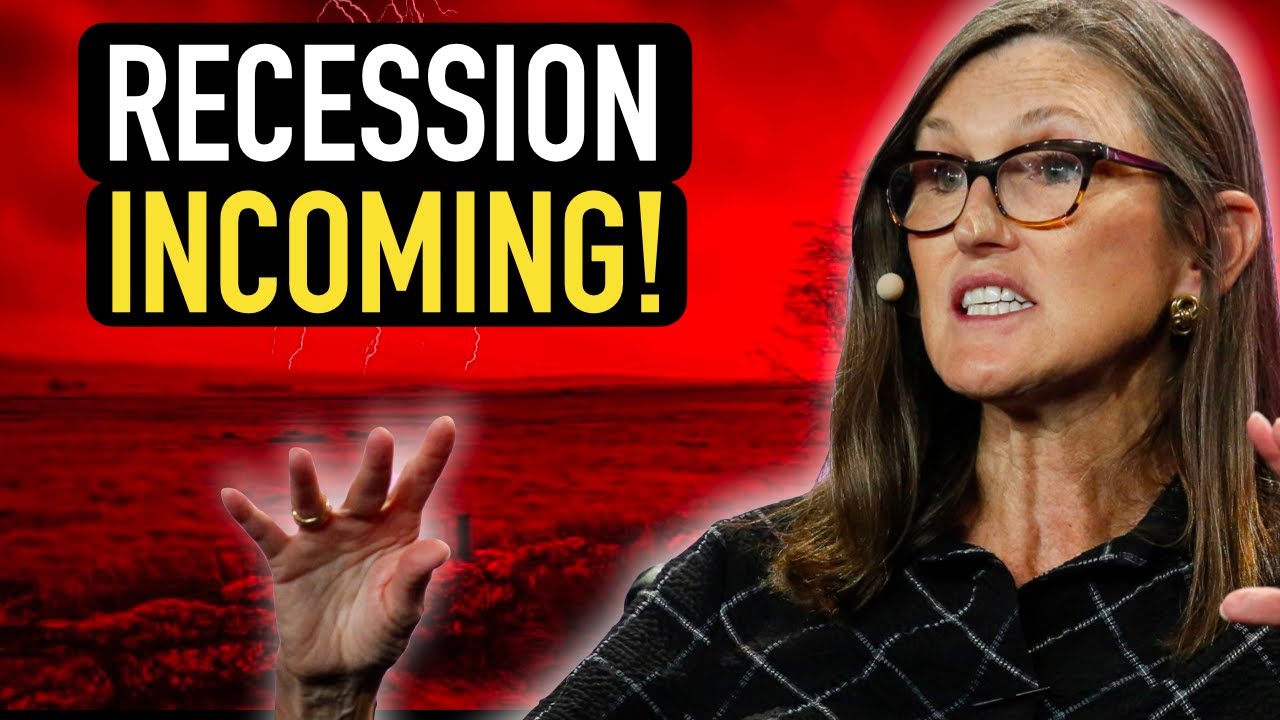We are here to shed light on an alarming topic that has been making waves in the financial world lately. It is our duty to inform you about the potential arrival of an impending recession and the possible crash of the markets. In this blog post, we will delve into the factors that could play a role in this economic downturn, giving you a comprehensive understanding of the situation. So, buckle up and join us on this journey as we unravel the reasons behind the potential market crash.
Recession Incoming! 🚨 Why Markets Could Soon Crash 🚨
Introduction
In today’s volatile economic climate, it is essential to remain informed about potential risks that could impact our financial investments. According to Cathie Wood of Ark Invest, a renowned investment management firm, the recession is already here, and it could have a significant impact on risk assets like Bitcoin. In this article, we explore the factors contributing to this impending downturn and analyze the potential consequences for various sectors. It is crucial to evaluate the situation meticulously and consider seeking professional investment advice before making any financial decisions.
- The Recession Started 18 Months Ago
The recession has been silently creeping upon us for quite some time. Experts argue that it officially started 18 months ago, marked by two consecutive negative quarters of real GDP growth. This downward trend in economic growth signifies a contraction in business activities, which can have a significant impact on financial markets.
- Housing and Auto Sectors Hit Hard
Two sectors that have been hit particularly hard by the recession are housing and auto. The housing market, known for its stability, has experienced severe declines, with prices dropping by as much as 40-50%. Simultaneously, the auto industry has struggled to maintain healthy sales, with numbers falling below expectations. These sharp declines in these essential areas of the economy are concerning signs of an impending market crash.
- The Bond Market’s Unprecedented Crash
Historically considered a safe haven for investors, the bond market has experienced an unprecedented crash in recent times. Experts note that this crash is more significant than anything seen in hundreds of years. This alarming development raises serious concerns about the overall health of the financial markets and the potential fallout from it.
- Misleading Job Reports
While the recent job report may have showcased an upside surprise, it is crucial to analyze the underlying data more closely. Discrepancies within the report have raised suspicions and highlighted potential issues. For instance, the increase in government jobs masks the substantial drop in non-government jobs. Moreover, the report also reveals a decrease in full-time employment, with part-time jobs being created instead. These inconsistencies in the job market data are vital indicators of an abnormal functioning economy.
- Contraction in Money Supply
Another cause for concern is the contraction in the money supply, specifically measured by M2. As the money supply decreases, it has adverse implications for risk assets. When there is a shortage of available funds, investors tend to become more cautious and reluctant to take on higher-risk investments. This contraction in the money supply could further exacerbate the potential market crash.
Conclusion
The economy is currently navigating treacherous waters, with signs pointing towards an impending recession. The housing and auto sectors have already felt the impact, while the bond market’s crash poses a significant threat. Additionally, the questionable job report data and the contraction in the money supply further raise concerns about the overall stability of the markets. In such demanding times, it is critical to seek professional investment advice before making any decisions to safeguard our financial well-being.
Frequently Asked Questions (FAQs):
-
How can I protect my investments during a recession?
- Diversify your portfolio by investing in different asset classes.
- Consider adding defensive stocks or bonds to your portfolio.
- Regularly review your investment strategy with a professional financial advisor.
-
Should I sell my stocks before the market crashes?
- Timing the market is challenging, even for experienced investors.
- Panic-selling can lead to significant losses.
- Consult with a financial advisor to develop a well-informed strategy tailored to your specific situation.
-
What sectors perform well during a recession?
- Defensive sectors like healthcare, consumer staples, and utilities tend to perform relatively well during a recession.
- However, there are no guarantees, and it is crucial to carefully evaluate each investment opportunity.
-
Can cryptocurrencies like Bitcoin protect against a market crash?
- Cryptocurrencies are highly volatile and speculative investments.
- While some argue that cryptocurrencies can act as a hedge, their performance during economic downturns remains uncertain.
- It is advisable to exercise caution and consider consulting a financial professional before investing in cryptocurrencies.
-
How long does the typical recession last?
- The duration of a recession varies, and it is difficult to predict precisely.
- Recessions can last anywhere from a few months to several years.
- Economic factors, government policies, and global events all contribute to the length and severity of a recession.
Note: The information provided in this article is for informational purposes only and should not be considered as financial advice. Always consult with a qualified professional before making any investment decisions.




